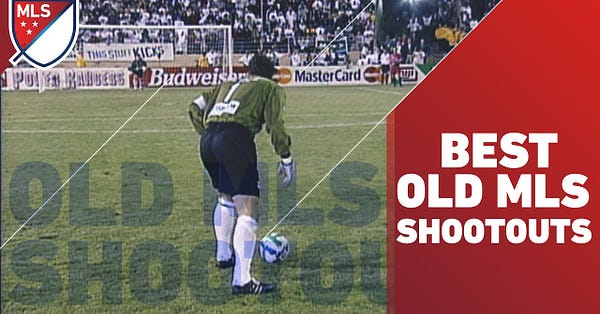Another Dumb American Suggestion
More from a long-running series: my dumb American questions about why don’t they improve the rules of soccer?
More from a long-running series: my dumb American questions about why don’t they improve the rules of soccer?
From the Wall Street Journal:
A Psychologist Spent Five Years Studying World Cup Penalty Shootouts
Every job requires performance under pressure. Here’s what everybody can learn from the most tense few minutes in sports.
Updated Dec. 9, 2022 5:03 pm ET
So, there are two causes of penalty kicks: one if, during the game, a defender commits a foul in the box in front of the goal, so the ball is placed 12 yards from the goal and the fouled team’s best kicker goes one on one with the goalies.
And the other is in an elimination game (where you can’t have a draw) if after 90 minutes of regulation time and 30 minutes of extra time, the score is still tied. Then each team gets 5 kicks by different players.
From 12 yards out, the kicker is expected to score, while goalies are heroes if they make a save and aren’t much criticized if they don’t:
… He found that anxiety was the emotion most associated with penalty shootouts, and the amount of pressure that a player felt was the most reliable predictor of success. Some rush their penalty kicks to get them over with. Others avoid eye contact with the goalkeeper. One player told Dr. Jordet that he was scared TV cameras would detect his legs shaking. So brains determine shootouts as much as hands and feet. When players are in position to instantly win a match with their penalties, they tend to do better than when not scoring means they would lose. Meanwhile, goalkeepers are heroes when their teams win and rarely get the blame when they lose, which frees them from some of the stress facing the players standing a dozen yards away.
Goalies often guess before the shot is struck and fling themselves toward one corner while the kicker sticks it in the other corner. But goalies aren’t much criticized for even huge misses like that because 12 yards is so short that goalies have to take big risks in hopes of getting lucky.
In contrast, kickers who miss, such as England’s Harry Kane against France last week, can sometimes never live it down. In 1994, Roberto Biaggio pretty much single-handedly carried Italy to the World Cup final in the Rose Bowl against Brazil, but given a chance to keep Italy alive in the tie-breaker, he skied the ball many yards over the crossbar. Twenty years later I was having lunch with an English reader at his fancy hotel in Santa Monica:
Reader: “Hey, look, there’s Roberto Biaggio.”
Me: “Oh, yeah, The Guy Who Missed!”
This is extremely unfair to Biaggio, but that’s kind of how it goes.
It’s like kicking Points-After-Touchdown in American football. If you pointed out to me Zenon Andrusyshyn, I’d immediately think of him as The Guy Who Missed in the 1967 USC-UCLA game for #1, allowing O.J. Simpson to beat Gary Beban 21-20. I can remember maybe one UCLA kicker since then (John Lee), but that’s an American PAT kicker’s fate: to be best remembered for failure rather than achievement.
Wouldn’t soccer tie-breaker kicks be better if instead of taking them from the same distance as penalty kicks during the game (12 yards, and note that this distance is so old they are still using English yards even though the English don’t even use yards anymore), they moved back the tie-breaker distance a few meters so that the kicker and goalie both had about a 50-50 chance of being the hero? (It’s like how before soccer-style kicking revolutionized American football placekicking, back when straight-ahead kickers only made about half their field goal attempts, placekickers were bigger heroes: George Blanda, Oakland’s placekicker and sub QB, was MVP in 1971 and Mark Moseley, Washington’s placekicker, was MVP in 1982.)
I’m not saying they should move back the within game penalty kicks, since that would encourage more fouling. I’m saying that the wholly artificial tie-breaker could be taken from a longer distance so that goalies face pressure and kickers can be heroes for making it rather than just goats for not scoring.
A reader points out that American pro soccer used to let the kicker dribble in from 35 yards out:


[Comment at Unz]
Originally published in The Unz Review on December 14, 2022.


